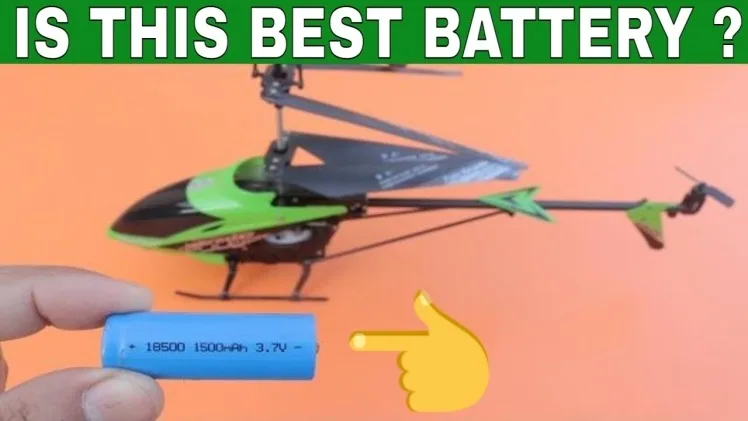RC helicopters rely on batteries as their power source, making it essential to comprehend battery capacity and its influence on performance and flight time. In this blog post, we will explore the concept of battery capacity in detail and how it directly impacts the performance of RC helicopters. By gaining a deeper understanding of battery capacity, you can make informed decisions when selecting your helicopter batteries, maximising flight time, and optimising your overall flying experience.
Factors Influencing Battery Capacity
Several factors influence battery capacity and, consequently, the performance of your RC helicopter:
a. Battery Chemistry
Different battery chemistries, such as Lithium Polymer (LiPo), Nickel-Metal Hydride (NiMH), and Lithium-Ion (Li-ion), offer varying capacities. LiPo batteries are commonly used in RC helicopters due to their high energy density and lighter weight, providing more capacity in a compact size.
b. Cell Configuration
Battery packs consist of multiple cells connected in series or parallel. Series connection increases the voltage output, while parallel connection enhances the capacity. Choosing the suitable cell configuration to balance voltage and capacity is crucial according to your RC helicopter’s power requirements.
c. Discharge Rate
The rate at which the battery delivers power, measured in C-rating, affects its adequate capacity. A higher C-rating enables the battery to discharge more current, providing more power to the RC helicopter. However, higher discharge rates can reduce the overall flight time.
Understanding the Impact on RC Helicopter Performance
Battery capacity has a direct influence on the performance of your RC helicopter in various ways:
a. Flight Time
The primary impact of battery capacity is on flight time. A higher-capacity battery will provide more power for a longer duration, allowing you to enjoy extended flight sessions before recharging. It is essential to consider your flying style, the complexity of maneuvers, and power consumption to estimate the desired flight time.
b. Power Output
Battery capacity also affects the available power output of the RC helicopter. Suppose your RC helicopter demands a high current to perform advanced maneuvers or lift heavier loads. In that case, a higher capacity and discharge rate battery will be essential for optimal performance.
c. Voltage Sag
As batteries discharge, their voltage drops. Higher-capacity RC batteries maintain voltage more consistently throughout the flight, reducing voltage sag. It helps maintain stable power output, especially during demanding maneuvers. Minimising voltage sag ensures smooth and consistent performance from your RC helicopter.
Selecting the Right Battery Capacity
Choosing the appropriate battery capacity for your RC helicopter involves considering flight time requirements, weight limitations, and performance expectations. Balancing capacity, weight, and power output is essential to achieve optimal performance.
a. Determine Flight Time
Assess your flying habits and how long you want to fly before recharging. Consider factors like your flying style, the complexity of maneuvers, and the RC helicopter’s power consumption. Higher-capacity RC batteries will offer longer flight times but consider the weight implications.
b. Weight Considerations
Higher-capacity RC batteries generally weigh more. Ensure the battery’s weight does not exceed the RC helicopter’s weight limits or compromise its stability and maneuverability. Finding a balance between capacity and weight is crucial to maintaining optimal flight performance.
c. Performance Needs
If you fly your RC helicopter aggressively, perform acrobatic maneuvers, or use additional accessories like cameras, opt for higher-capacity batteries with higher discharge rates to meet the power demands. It will ensure that your RC helicopter performs optimally and can handle additional accessories during demanding maneuvers.
Battery Care and Maintenance
To maximise the lifespan and performance of your RC helicopter batteries, adhere to proper care and maintenance practices:
a. Charging
Always use a compatible charger and follow the manufacturer’s guidelines for charging rates and balancing. Avoid overcharging or discharging the battery excessively, as it can damage the cells and reduce overall capacity. Charging the batteries at recommended rates ensures optimal performance and longevity.
b. Storage
When storing batteries for an extended period, ensure they are discharged to a safe voltage level and stored in a cool, dry place. Regularly check their voltage levels during storage and recharge as necessary. Storing batteries at the correct voltage level and in proper conditions helps maintain their capacity and overall health.
c. Cycle Life
RC helicopter batteries have limited charge cycles. Proper care and moderate use can help prolong their cycle life. Avoid deep discharges and store them with a partial charge if not used for extended periods. Following good cycling practices, such as avoiding over-discharging, will help extend the lifespan of your batteries.
Optimising Battery Performance for RC Helicopters:
To further enhance the performance of your RC helicopter batteries, consider implementing these optimisation techniques:
a. Battery Balancing
Balancing the cells within a battery pack ensures that each cell receives an equal charge and discharge. Use a battery balancer during charging to equalise the voltage across all cells, which promotes longevity and maximises overall performance.
b. Proper Discharging
Avoid deep discharges, as they can negatively impact battery capacity and overall health. Set a voltage cutoff or use a low-voltage alarm to prevent battery discharging beyond safe levels. This practice helps maintain optimal capacity and prolongs the lifespan of your batteries.
c. Temperature Management
Batteries perform best within a specific temperature range. Extreme cold or heat can affect battery performance and capacity. Fly your RC helicopter in moderate temperatures and avoid leaving batteries in hot environments or exposing them to extreme cold.
Conclusion
Understanding battery capacity and its impact on RC helicopter performance is crucial for enthusiasts seeking optimised flight time, power output, and an enjoyable flying experience. You can select the suitable battery capacity that meets your requirements by considering flight time requirements, weight limitations, and performance needs. Additionally, practising proper battery care and maintenance will ensure the longevity and reliability of your RC helicopter batteries. To learn more about these high-capacity batteries, speak to experts at RC Battery, today!



